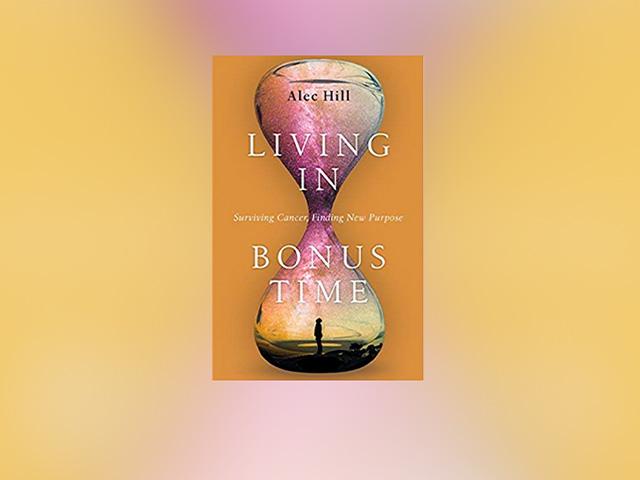Surviving Cancer, Finding New Purpose: An Interview with Alec Hill

Two-time cancer survivor, Alec Hill, discusses his latest book, Living in Bonus Time. He wrestles with some of the hardest questions people have when they are forced to go through cancer like why me?, where is God in all this?, and how should I live differently now? Those who survive their medical ordeals are “living in bonus time,” and Alec powerfully explores how this “season of grace” can be challenging and rewarding for those who go through it.
Through his raw and honest account of his own battles with cancer, including a bone marrow transplant, he invites God into every part of life with a deadly illness and illustrates how, as a victim or a caregiver, God can use mortality to bring us into a new perspective on life.
Who is this book for and what do you hope readers will take away from it?
The number of cancer survivors is quintupled in the last half century. The progress being made is incredible. So first I wrote it for survivors. Maybe I could help people along the way with their doubts, fears, with their sense of purpose. But as I wrote it, it became clear that the second group of people I was writing for were caregivers. Partly, that was the influence of my wife who cared for me through both cancers in ways that no spouse should ever have to do. Mary's just absolutely remarkable.
I'd say it's 70% for survivors and 30% for caregivers because caregivers are my heroes and they carry such burdens. All the focus is on the patient, and no one's really focusing on the caregiver. It's a tough road. And for some people, it's a long, long journey.
How did uncertainty and loss of control lead to a richer spiritual life for you?
I’m not quite a control freak, but I like to lead and organize. Cancer stripped away the notion that I controlled as much as I thought I did. Suffering wakes us up to our lack of control. I think when that happens, we are moved from a place of self-sufficiency to a place of dependence. [Cancer] strips us naked, and that can leave at least one or two directions -- away from God or towards God. What I found in my reading was that historically, in the Church and in modern research, a deeper faith is often a product of suffering and survival.
What do you say to people who think they've gotten cancer because of something they've done or not done enough of?
Weeks before my transplant, a couple approached me, oblivious to the fact that I was weakened by chemo, and they basically told me I should not go to the doctor, that God would heal me if I had enough faith. In essence, they were saying first of all, that science and doctors aren’t really valuable in God's economy, and, second, that if I died, it was because I didn't have enough faith.
Health and wealth theology sounds positive: God wants to do all and God, God is a good God. But a look at Scripture describes the apostles who died martyrs’ deaths and Paul who had the thorn in his flesh. After the fall in Genesis 3, we live in this now but not yet tension. We are given a lot of blessings, but not all of them. We must be careful not to get into a transactional mindset with God: If I do this, then you're going to give me that. I think that's far too simplistic to deal with the complexities of cancer.
What is the importance of community for those walking through cancer?
When I first entered “cancerland” (as one doctor describes it), I saw people sitting by themselves and I thought, I cannot imagine going through this alone. The weird thing about my cancer was because it was autoimmune, I couldn't be with other people for a whole year. So my yearning for community was limited by the nature of my illness.
What these experiences taught me is that I've always been more dependent on others than I realized. Nurses carried me for 87 straight days via infusions for four hours a day. They became my friends. I couldn't see my own kids, but the nurses and the nurse’s aides loved me. They fluffed my pillows, cheered me up, and brought me chocolate milk. So while I felt awful being hooked up to an infusion machine with fluids pouring through the catheter in my chest, my community sustained me. These oncology doctors and nurses, they're truly remarkable, life-giving people.
So, to summarize, community is family. It's friends. It's also the professional community. I think they loved me and I loved them back.
You end the book talking about resilience and wonder. Could you talk a little about that?
I was really surprised to learn that two thirds of trauma survivors claim personal growth. Now, that doesn't make the trauma good—it's still manure, as I call it. Stinky and awful, it can also serve as a compost for growth. I call it survivor's growth.
Regarding wonder, I now experience it three or four times as often as I did pre-cancer. Whether it's holding child, petting a dog, enjoying a sunset, or singing a worship song, I regularly revel in awe. My eyes have been opened to transcendent wonder in surprising and life-giving ways.






